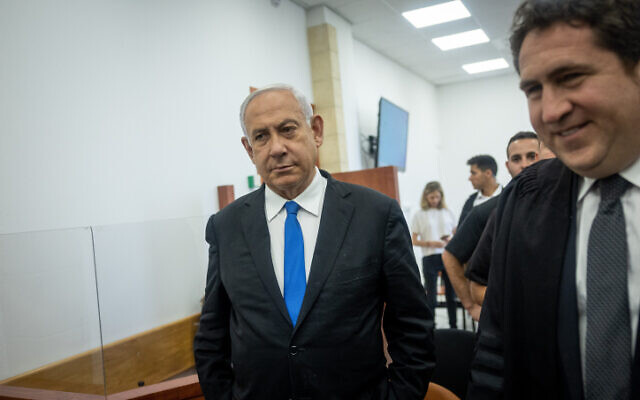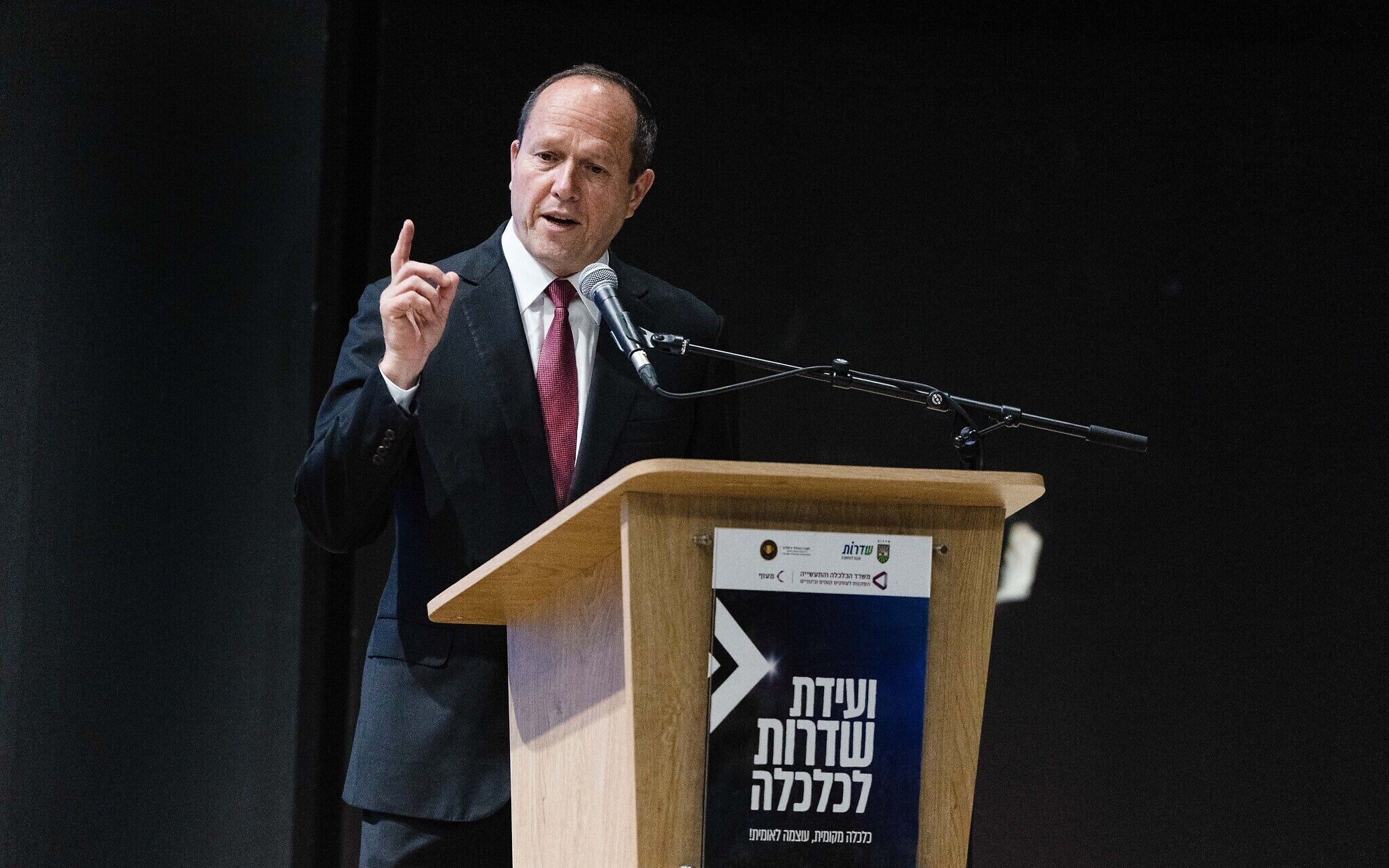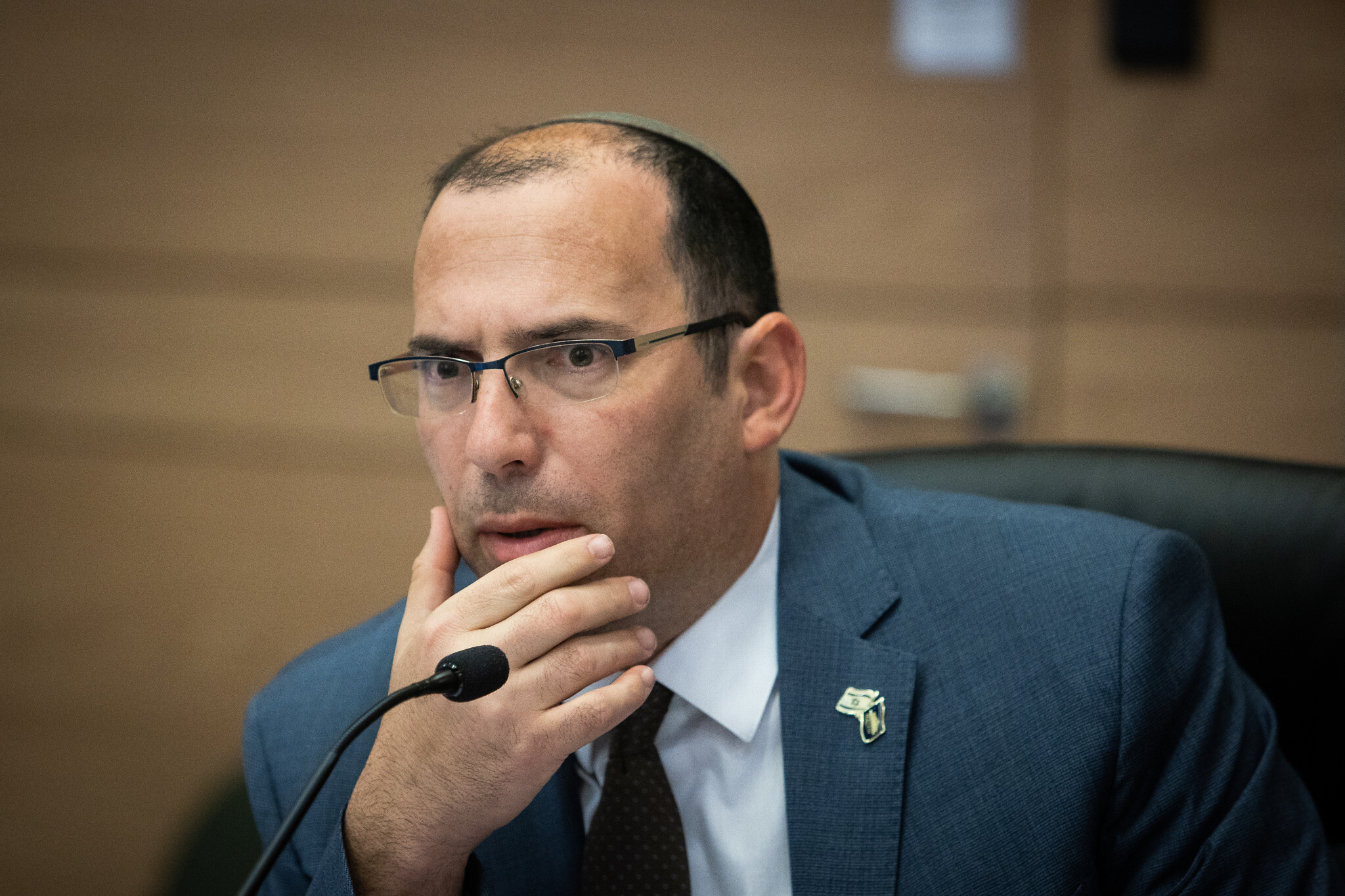Netanyahu allies claim doubts over bribery charge prove need to overhaul judiciary
After judges in Netanyahu trial reportedly warn prosecutors over weakness of accusation, politicians say it shows dangers of allowing a state body to act without oversight

A report this week that judges presiding over the criminal trial of Prime Minister Benjamin Netanyahu have counseled prosecutors against pursuing bribery charges has energized calls within the governing coalition to expedite a contentious overhaul of the judiciary, saying the affair proves the need for reforms.
According to reports, the judges in the premier’s corruption trial convened with state prosecutors and Netanyahu’s defense team in their chambers earlier this week in order to discuss the complexities involved in substantiating the bribery charge against the prime minister in Case 4000, the most significant of the three cases against Netanyahu that make up the trial.
While the charge of bribery is the most significant faced by Netanyahu, he additionally faces charges of fraud and breach of trust in that case, as well as in two other cases.
Economy Minister Nir Barkat said Friday that the reports showed the need for the government’s planned judicial overhaul, which will place constraints on the Attorney General’s independence but does not include any major elements that would impact criminal prosecutions.
“The prosecutor’s office must be supervised. This is a matter of consensus and there is no better example than what happened now — for five years the prosecutor’s office has dragged us through this awful, terrible experience,” Barkat told Channel 13 news.
“I hope that the State Attorney’s Office will come to its senses and that the opposition will also begin to understand that criticism of the State Attorney’s Office is in the national interest of all of us, and should be shouted to the heavens,” said Barkat, a member of Netanyahu’s Likud party.
He warned that a lack of oversight would foster corruption, echoing a charge leveled at the ruling coalition for pursuing changes to the judiciary that will strip the court’s oversight mandate and leave government power unchecked.
“The State Attorney’s Office is an unchecked body and it does heavy damage to the people of Israel,” Barkat charged.
MK Simcha Rothman, a lawmaker from the far-right Religious Zionism party and a key architect of the overhaul, claimed that the reports demonstrated that the “judicial system is politically biased and associated with political parties and camps.”
“This is the greatest threat to democracy today. The justice system must be fixed. And that’s what we will do, with God’s help,” Rothman tweeted.
Heritage Minister Amichai Eliyahu of the far-right Otzma Yehudit party tweeted that “trust is broken, systems must be changed. I pray that this sad saga will end soon, in the hope of correcting the injustice, and restoring the people’s trust in the justice system.”
The central planks of the overhaul currently do not deal with the State Attorney’s Office.
However, it was reported last month that Netanyahu will reportedly pursue shakeups of the State Attorney’s Office and the Attorney General’s Office — the two offices that play an essential role in deciding on opening criminal cases — if his coalition’s negotiations with the opposition on judicial reform fall apart.
Meanwhile, unnamed sources told Haaretz that Netanyahu currently preferred to leave the overhaul legislation “on a low simmer,” keeping bills on the Knesset’s agenda without advancing them.
The sources said that the premier aimed to keep the contentious legislation on a back burner for around a year, at which point he would have a better idea of the direction his trial was taking.
Netanyahu has always publicly denied that his personal legal troubles were in any way connected to his government’s efforts to remake the judicial system.

Case 4000, also known as the Bezeq-Walla case, focuses on allegations that Netanyahu, during a previous tenure as prime minister, authorized regulatory decisions that financially benefited Bezeq telecommunications giant shareholder Shaul Elovitch by hundreds of millions of shekels. In return, Netanyahu allegedly received favorable media coverage from the Walla news site, also owned by Elovitch. Netanyahu faces charges of bribery, fraud and breach of trust in the case.
Netanyahu is also on trial for two additional counts of fraud and breach of trust in Case 1000, which concerns gifts he allegedly inappropriately received from billionaire benefactors, and Case 2000, in which he allegedly negotiated to obtain positive media coverage in a newspaper in exchange for curtailing its competitors.
Netanyahu denies any wrongdoing in the cases against him and claims that the charges were fabricated in a witch hunt led by the police and state prosecution.











